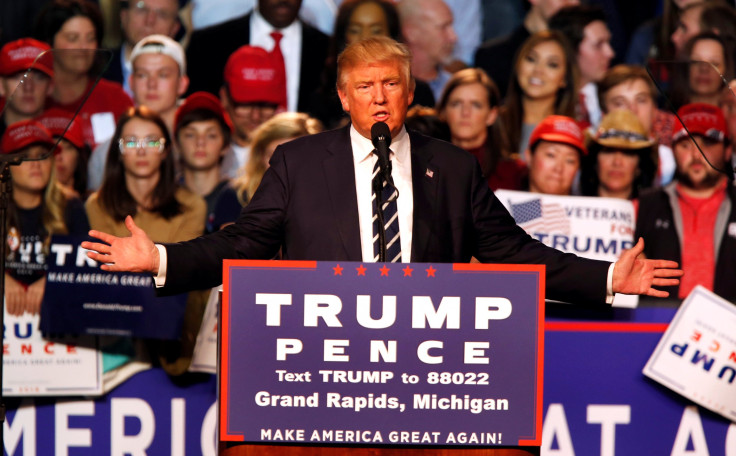Will Donald Trump Run Again In 2020? If He Loses GOP Candidate Could Eye Next Election

Whether he wins or loses Tuesday's presidential election, Republican candidate Donald Trump has cemented his legacy for shaking up his party and America’s political system over the last 17 months. Should Trump fall short against Democrat Hillary Clinton on Tuesday, it’s possible the billionaire businessman could consider another run in 2020.
While there are reasons to believe 2016 will be Trump’s sole endeavor for the White House, there are several others to suggest a second run four years from now could be in the mix.
For one, former Speaker of the House and top Republican operative Newt Gingrich, recently posited that Trump could run again and even form his own party within the GOP.
"I think that’s very possible,” Gingrich said on a Politico podcast last month. "I think he likes being part of a movement — he likes thinking of it as a movement. … I was thinking about this, [and] he said to me the other morning, … ‘I sent out one tweet and 15,000 people showed up.’”
That would mean a potential rematch with Clinton, who Gingrich also said might have to avoid further investigation into her email scandals in her first year as president, should she win.
In the same interview, Gingrich also cast aside the possibility and heavily rumored idea that Trump could start his own television network after the election, calling the notion “silly” and saying Trump’s “bigger than that.”
It’s been widely reported that Trump’s son-in-law, Jared Kushner, held a meeting earlier this year with a major television power broker on the idea of a network, but nothing concrete has been decided prior to the election.
Another reason might be the opportunity for more media coverage. Well before he sewed up the GOP nomination, Trump had received $2 billion in free media coverage. He has used the attention to promote his many brands that bear his name.
But much of Trump’s potential decision to run again will likely be based on how well he fares in this election. Roughly two weeks prior to Election Day, most polls placed Clinton ahead by double-digits but Trump has since closed the gap with most polls released Monday showing a Clinton lead of as much as 7 points or as little as 1 point, according to Real Clear Politics. Results from three polls released on Tuesday showed Trump ahead by either 2 points or 3 points.
And, even though projections by the New York Times and polling data blog Five Thirty Eight give Clinton the strongest chances of winning, Trump has also made significant strides in swing states like North Carolina, Ohio, Pennsylvania, and Florida, signaling his messages have resonated with voters.
From the start of his campaign, the Trump campaign has been a lightning rod for controversy and criticism. He repeatedly disparaged Mexicans and Muslims while invoking a nativist platform at campaign rallies. He also has faced accusations of sexual assault and questions over his actual wealth after refusing to release his tax returns.
Age too is a factor. Trump, who turned 70 in June, will be 74 in 2020 and if he is elected this year he would already be the oldest to ever begin a presidential term.
The success rate for repeat presidential candidates is also quite low and it’s rarely occurred in the last 60 years. Other than sitting presidents, billionaire Ross Perot was the last candidate to make a serious independent bid for the White House. Before Perot, Richard Nixon was the last nominee from either party to make a second run. After losing to John F. Kennedy in 1960, Nixon ran in 1968, defeating Democrat Hubert Humphrey.
© Copyright IBTimes 2024. All rights reserved.











